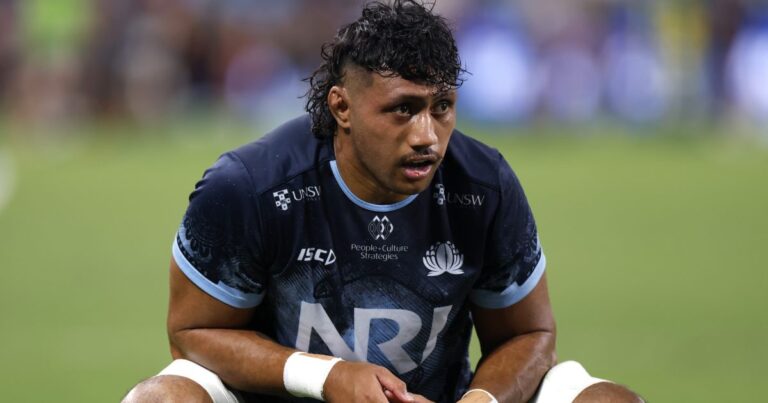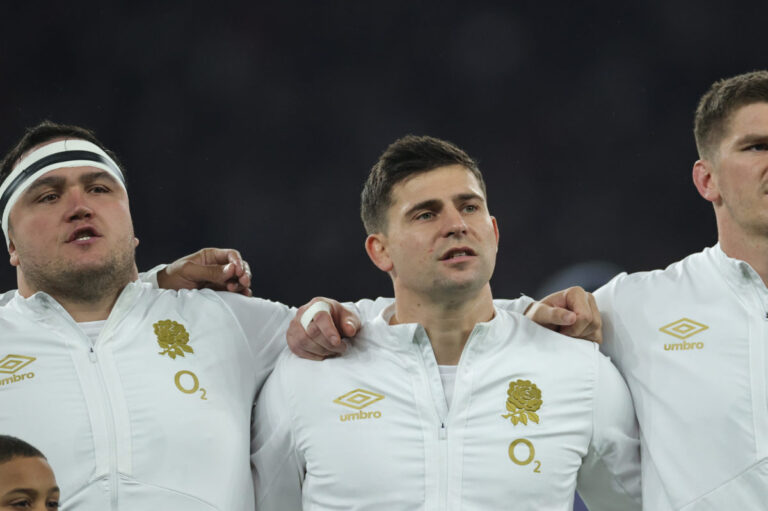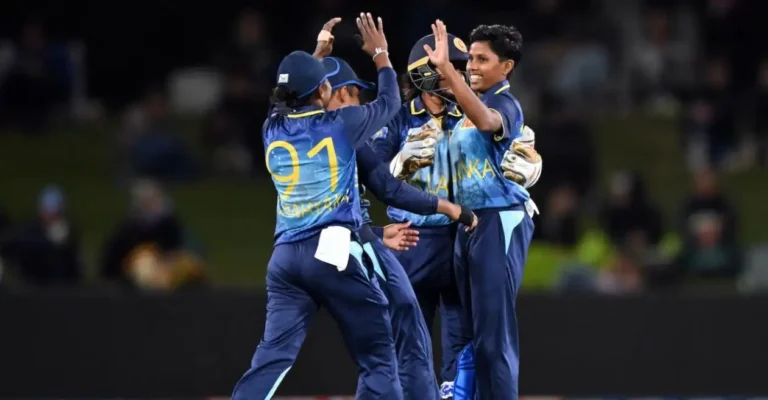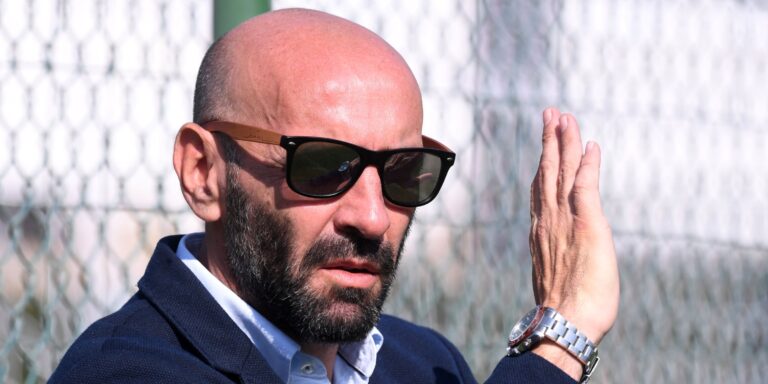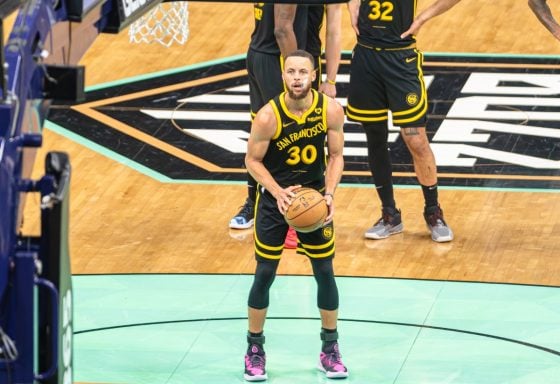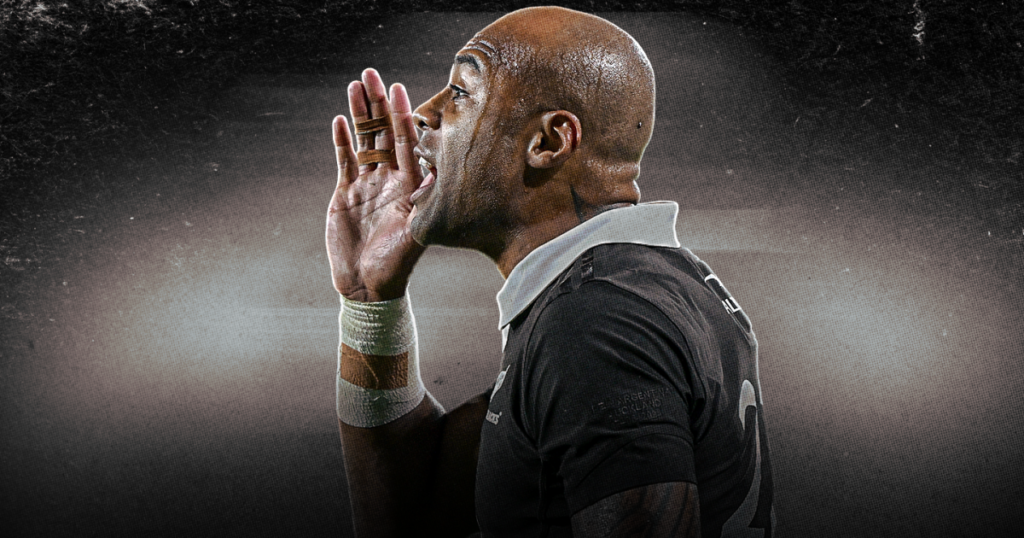
Strangely, New Zealand has reacted to the loss of Mark Tele’a with little concern. The Blues and All Blacks wing confirmed last week that he is going to head to Japan later this year and team up with former All Blacks coaches Ian Foster and Steve Hansen instead of committing himself to the 2027 World Cup.
It seemed that the news of his impending departure to Toyota Verblitz was met with little more than a shrug, and that New Zealanders don’t particularly feel they need to lament the loss of the man who in 2023 was named World Rugby breakthrough player of the year, and who has been, mostly, the All Blacks first choice right wing since the end of 2022.
The prevailing view – certainly the most common reaction from experts, commentators and fans – was that Tele’a, who will turn 29 later this year, had his best years behind him.
The general vibe appeared to be that if he stayed in New Zealand, he’d inevitably lose his All Blacks place to one of the many emerging wings who have lit up Super Rugby this year.
The underlying inference is that he’s getting too old, will likely end up too slow and that he has made a smart decision to cash-in now and take what is believed to be an eye-watering offer to play for Toyota.
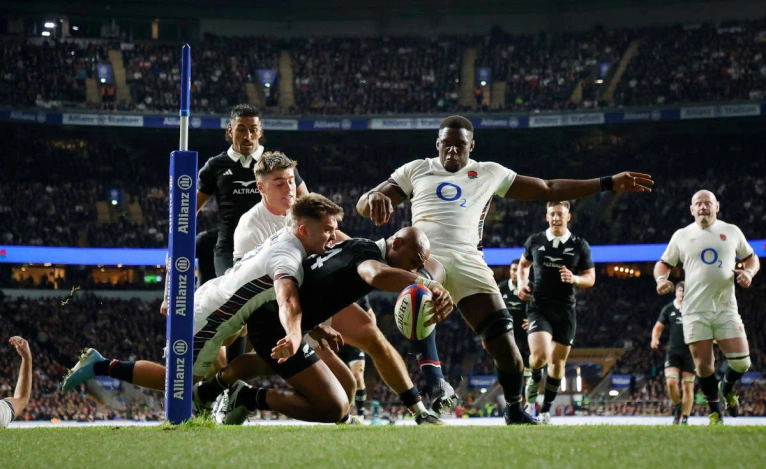
The general sentiment of Telea’s decision to leave was summed up best by the comments of former All Blacks outside back Israel Dagg, who said: “Mark Tele’a has had limited opportunities and he is in a position that has been heavily contested throughout this season.
“No disrespect, but I think that ship has sailed and I think the coaching group will look at options elsewhere.
“I’m sure he’ll be really valued over in Japan but I’m not concerned, because I think there is so much talent here that will be unlocked this season and given opportunities.”
Dagg, who played his last test at the age of 30 – he was forced to retire prematurely due to a chronic knee injury – believes that there is an overwhelming body of evidence to say that wing is a young man’s position at international level and that New Zealand always has emerging talent to call upon.
Tangitau is undoubtedly talented and frighteningly quick, and there is equally no question that Carter, Narawa, Fainga’anuku, Tavatavanawai and Carter have ability.
He named 22-year-old Highlander Caleb Tangitau as a potential replacement for Tele’a in the All Blacks, while other experts name-checked Leroy Carter at the Chiefs, as well as the previously capped Emoni Narawa and Highlanders captain Timoci Tavatavanawai.
And with Leicester Fainga’anuku on his way home from Toulon, the All Blacks will have another wing option to supposedly render the loss of Tele’a almost negligible.
This read of New Zealand as a land with an abundance of outrageously talented wings to put into the All Blacks is, however, grossly exaggerated and possibly misplaced.
Tangitau is undoubtedly talented and frighteningly quick, and there is equally no question that Carter, Narawa, Fainga’anuku, Tavatavanawai and Carter have ability.
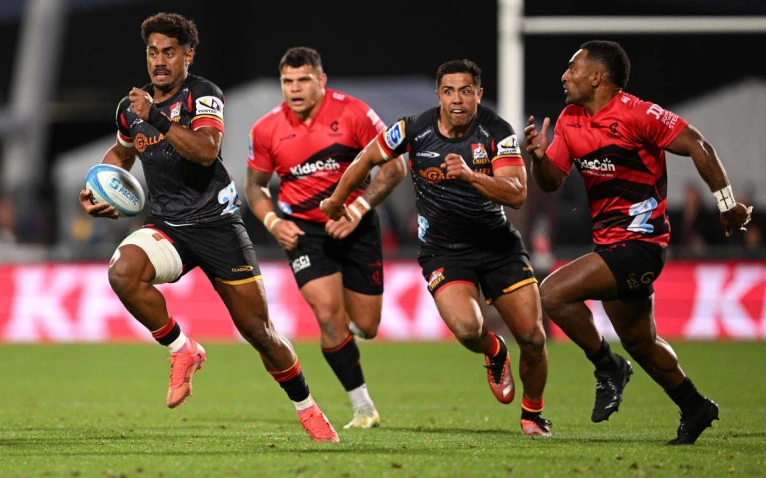
But there is a big difference between being a proven test player like Tele’a – who starred at the 2023 World Cup and has shown in 19 appearances to date that he has the temperament and all-round game to play at the highest level – and being a promising Super Rugby player.
Test rugby is a different beast entirely to Super Rugby and that is especially true of wings, whose role in the former can often look nothing like the game they are asked to play in the latter.
Super Rugby is fast, open and aerobic and rarely do games revert to strategic kick-fests where the ability to chase and catch high balls becomes critical. And this is one of the many reasons why Tele’a’s decision to leave for Japan is more significant than was appreciated last week and has the potential to hurt the All Blacks.
A few days after saying he was leaving, Tele’a showed his real value with a bruising, bustling performance in the rain against the Crusaders. He bashed hard yards for his team, collected tricky high kicks and covered on defence.
Everyone who thinks the All Blacks can click their fingers and magic another incredible, try-scoring wing is deluding themselves. Tele’a is a special talent with a skill-set that is significantly wider and more on brief for test rugby than many of his peers and replacing him may be harder than anyone is anticipating.
He’s shown he can win the ball in the air: that he can adapt his game to make a contribution no matter the weather, the occasion or the opponent.
A few days after saying he was leaving, Tele’a showed his real value with a bruising, bustling performance in the rain against the Crusaders. He bashed hard yards for his team, collected tricky high kicks, covered on defence and popped up all over the place to add value each time he had the ball.
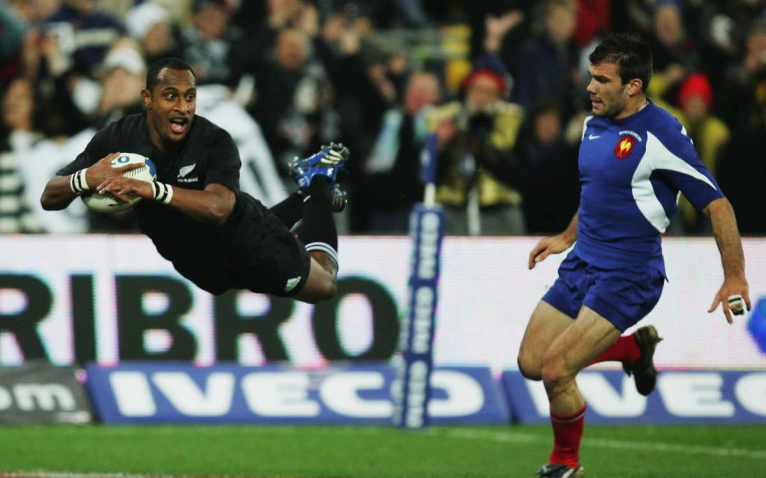
The Blues didn’t win but that was nothing to do with Tele’a, whose performance only typified why his Super Rugby club were willing to offer him a four-year extension to stay. Their view was that he would be the same player at 32 than he is at 28 because his game is built on his work-rate, his strength, instincts, and wider skill-sets rather than his pace.
He’s an all-rounder with an adaptable skill-set and he’s looked as at home in test rugby playing Scotland as he has against South Africa.
That’s rare for a wing to be so versatile – he can also play both on the left and right – and what seems least appreciated about Tele’a, is that his game is not as vulnerable to being impacted by age as others who have played on the wing for the All Blacks.
It’s true that many All Blacks greats – Christian Cullen, Joe Rokocoko, Sitiveni Sivivatu, Jonah Lomu – were all 27 when they respectively played their last tests, while the likes of Doug Howlett and Rico Gear had just turned 29, but to automatically extend the same argument to Tele’a is lazy.
It’s true that many All Blacks greats – Christian Cullen, Joe Rokocoko, Sitiveni Sivivatu, Jonah Lomu – were all 27 when they respectively played their last tests, while the likes of Doug Howlett and Rico Gear had just turned 29, but to automatically extend the same argument to Tele’a is lazy.
It’s also true that New Zealand has a bad habit of overestimating what’s actually in the talent pool. It’s not always the case the next generation steps up the way they have been predicted to and looking back through the last 15 years or so, the All Blacks have quite often been bereft of an obvious, world class right wing.
At the 2011 World Cup they had to coerce centre Richard Kahui to play out of position. In 2015, they picked too test rookies – Nehe Milner-Skudder and Waisake Naholo in their squad, which was much the same thing they did four years later when Sevu Reece and George Bridge made it into the team.
And the situation may not be so different once Tele’a moves on as there is no guarantee that any of the wings who have been touted as potential replacements will prove to be of the right calibre.
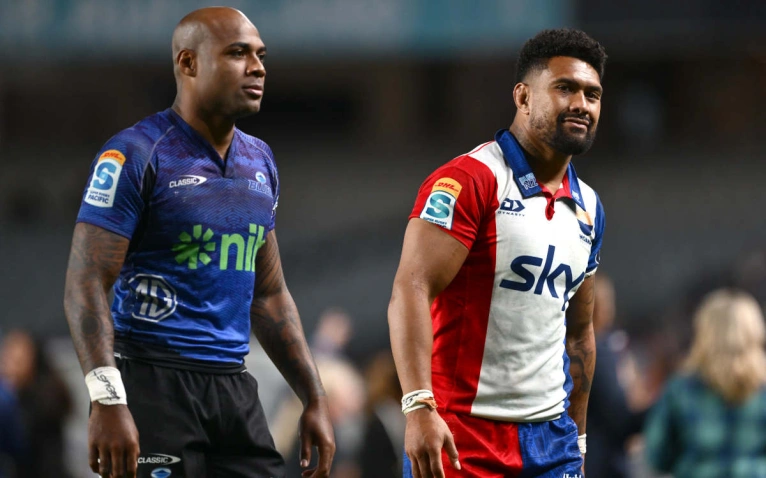
Fainga’anuku is powerful, but he’s never looked great under a high ball, and he’s been exposed defensively in the past. He may also be coming home with ambition to play more in the midfield. Narawa glides across the turf but he’s not an out and out finisher in the same mould as Tele’a and has looked a little nervous on his previous test appearances.
As for the others – all that can be said is that there is a long journey to endure from looking good at Super Rugby to becoming a reliable test players. And it’s with this in mind that former All Blacks wing Jeff Wilson was obviously weighing up when he expressed his concern about the impact of losing Tele’a.
Wilson, who won 60 test caps, knows what it takes to thrive in the test arena and to give the All Blacks the full range of skills the All Blacks need in the No 14 jersey, said: “I don’t know if we can do more to keep our players in New Zealand but this really concerns me. This guy is a superstar, not just in our game for the All Blacks but for the Blues as well – one of our great superstars.
“I’m concerned right now, Mark Tele’a I think is a huge loss. He’s a bit different to what we’ve had before; the strength, the footwork in small spaces through the middle of the park. He’s in his prime, I think he has two, three, four good years in him, but now it looks like we’re going to lose that.”

